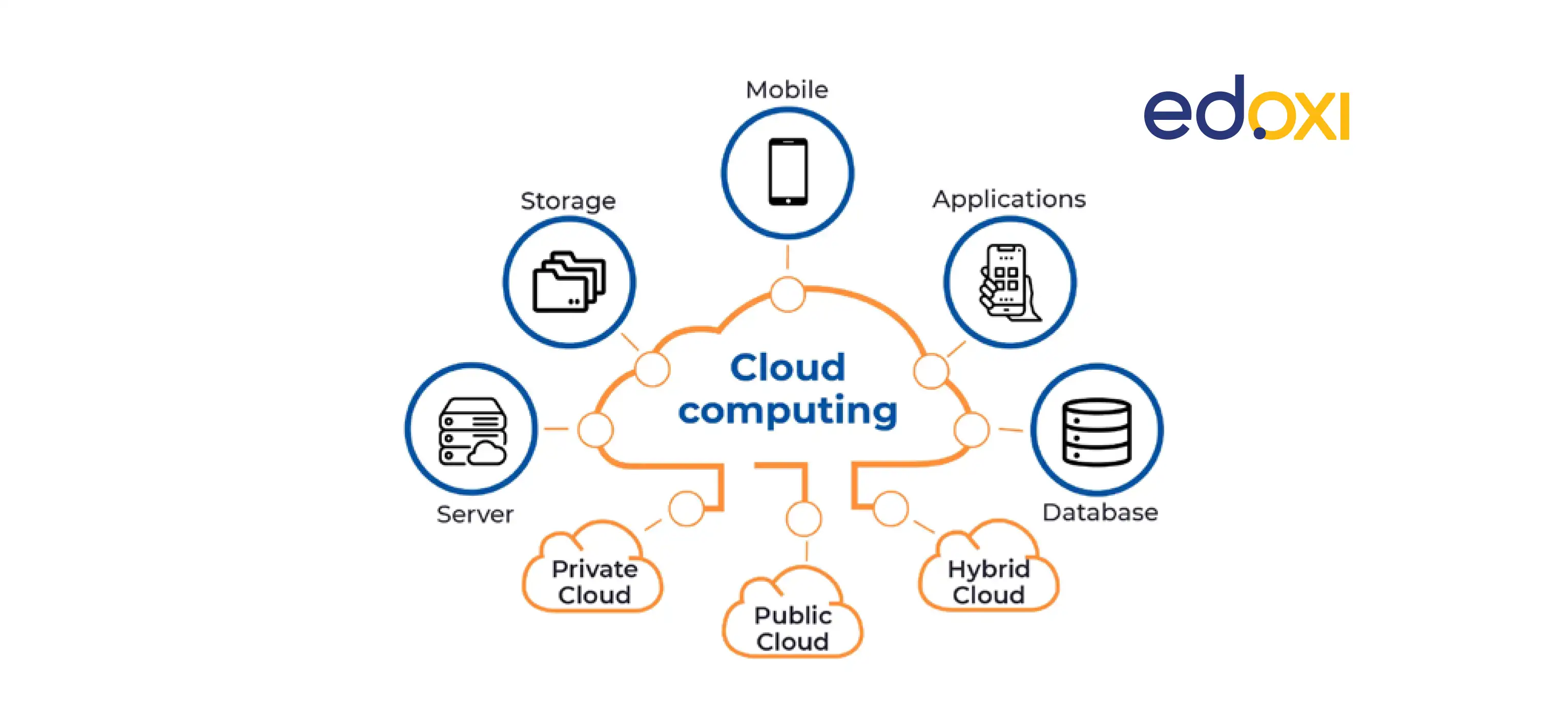Reduce Prices and Boost Performance With Cloud Services
In today's fast-paced service landscape, the mission for expense decrease and operational effectiveness is a common objective for organizations across sectors. Cloud solutions have actually become a key service to deal with these obstacles, offering a myriad of advantages that extend past simple economic cost savings. The possible to improve procedures, boost cooperation, and drive advancement via cloud modern technologies is an engaging proposal for services wanting to stay ahead. By utilizing the power of the cloud, companies can open a world of possibilities that not only maximize their lower line but likewise pave the way for future growth and success.
Benefits of Cloud Services
Cloud services supply businesses a streamlined and economical service for handling data and applications. One key benefit of cloud solutions is scalability. Organizations can conveniently scale their storage and computer sources up or down based upon their needs, avoiding the costs and constraints of maintaining physical web servers. This flexibility enables companies to adjust to transforming needs rapidly and effectively, without the demand for huge upfront investments in infrastructure.
Another benefit of cloud solutions is enhanced partnership. With data saved in the cloud, workers can function and access on files in real-time from anywhere with a net link. This boosts synergy, enhances efficiency, and enhances workflows. Furthermore, cloud services typically feature integrated safety and security functions such as information encryption, routine back-ups, and access controls, offering services with comfort regarding the safety and honesty of their information.
Moreover, cloud services supply organizations the benefit of automatic software updates and maintenance. Solution suppliers take care of these jobs, liberating beneficial time and sources for business to concentrate on their core company tasks. On the whole, the advantages of cloud services add to enhanced effectiveness, agility, and competitiveness for organizations of all dimensions.
Cost Cost Savings Via Cloud Migration

Additionally, by transitioning to the cloud, organizations can gain from enhanced flexibility and agility. Cloud facilities enables fast release of new resources and solutions, allowing businesses to adapt to altering market needs rapidly. This agility converts into expense savings as business can react to market shifts a lot more effectively without the need for significant upfront financial investments in infrastructure.
Increased Operational Efficiency
Enhancing functional performance within services is necessary for making best use of efficiency and simplifying processes. Cloud services play a vital function in attaining this goal by supplying devices and sources that allow companies to run more smoothly and successfully. One essential method cloud services enhance functional efficiency is by streamlining data storage space and monitoring. This eliminates the demand for numerous diverse systems, lowering the threat of errors and replication of efforts.
In addition, cloud services provide automation capacities that enhance repeated tasks, releasing up employees to focus on more calculated efforts. By automating processes such as data back-ups, software updates, and resource provisioning, services can operate a lot more efficiently and with less guidebook treatments.
Furthermore, cloud services provide real-time cooperation tools that permit employee to work together seamlessly, no matter their physical area. This advertises quicker decision-making and improves total productivity - linkdaddy cloud services press release. On the whole, by leveraging cloud services to enhance operational efficiency, businesses can optimize their processes, reduce prices, and get an affordable edge in today's hectic market

Scalability and Adaptability Advantages
Achieving ideal scalability and adaptability in operational processes is vital for modern services to adapt to altering demands and possibilities successfully. Cloud solutions offer considerable advantages in this respect by offering businesses with the capacity to scale their resources up or down based on current requirements. This scalability allows firms to take care of changes in work without the demand for significant investments in framework.
Additionally, cloud services supply versatility by enabling workers to accessibility information and applications from any kind of area with an internet connection. This function is specifically useful in today's hectic organization setting, where remote work and collaboration are coming to be significantly usual. Additionally, cloud services often supply pay-as-you-go prices models, allowing services to only pay for the sources they in fact utilize. This flexibility in prices ensures that business can enhance their costs while preserving the capacity his comment is here to quickly change to altering business requirements. By leveraging the scalability and versatility benefits of cloud services, businesses can enhance their operations and stay active in a competitive market.
Safety And Security and Conformity Considerations
When executing cloud services, businesses should focus on protection and conformity factors to consider to guard their data and comply with regulatory demands. Safety and security in the cloud is a shared obligation in between the company and business using the solutions. Business must make certain that the cloud company applies robust safety see measures such as security, access controls, and routine protection audits to safeguard data from unauthorized access or breaches.
When moving to the cloud,Conformity is one more vital aspect that companies require to deal with. Different sectors have specific regulative needs concerning information storage space, managing, and privacy. It is crucial for businesses to pick a cloud company that adheres to relevant criteria and policies to stay clear of lawful ramifications and punitive damages.
To boost security and conformity in the cloud, businesses need to conduct routine danger assessments, implement rigorous gain access to controls, and monitor data usage and storage. cloud services press release. In addition, establishing clear policies and procedures for information taking care of and educating workers on safety finest practices can better strengthen the overall security stance of the organization in the cloud setting
Verdict
Finally, the usage of cloud solutions supplies substantial benefits for companies in regards to cost financial savings, enhanced operational performance, look at this website safety, adaptability, and scalability factors to consider. By moving to the cloud, firms can enhance procedures, maximize source allocation, and enhance competitiveness in the market. The pay-as-you-go version, centralized information storage space, and automation capacities add to a more cost-effective and efficient functional structure for services of all sizes.
Cloud services offer services a streamlined and economical remedy for handling information and applications. cloud services press release. Additionally, cloud services typically come with built-in protection features such as information encryption, regular backups, and access controls, supplying services with tranquility of mind relating to the security and stability of their information
When carrying out cloud services, organizations must focus on security and conformity factors to consider to protect their information and stick to governing requirements. Safety in the cloud is a common obligation in between the solution supplier and the service using the services.In conclusion, the use of cloud solutions uses significant advantages for organizations in terms of expense savings, boosted functional effectiveness, scalability, flexibility, and safety considerations.